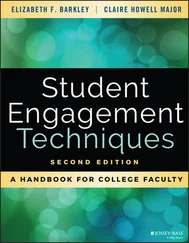Elizabeth Moon - Rules of Engagement
Здесь есть возможность читать онлайн «Elizabeth Moon - Rules of Engagement» весь текст электронной книги совершенно бесплатно (целиком полную версию без сокращений). В некоторых случаях можно слушать аудио, скачать через торрент в формате fb2 и присутствует краткое содержание. Жанр: Космическая фантастика, Боевая фантастика, на английском языке. Описание произведения, (предисловие) а так же отзывы посетителей доступны на портале библиотеки ЛибКат.
- Название:Rules of Engagement
- Автор:
- Жанр:
- Год:неизвестен
- ISBN:нет данных
- Рейтинг книги:4 / 5. Голосов: 1
-
Избранное:Добавить в избранное
- Отзывы:
-
Ваша оценка:
- 80
- 1
- 2
- 3
- 4
- 5
Rules of Engagement: краткое содержание, описание и аннотация
Предлагаем к чтению аннотацию, описание, краткое содержание или предисловие (зависит от того, что написал сам автор книги «Rules of Engagement»). Если вы не нашли необходимую информацию о книге — напишите в комментариях, мы постараемся отыскать её.
Rules of Engagement — читать онлайн бесплатно полную книгу (весь текст) целиком
Ниже представлен текст книги, разбитый по страницам. Система сохранения места последней прочитанной страницы, позволяет с удобством читать онлайн бесплатно книгу «Rules of Engagement», без необходимости каждый раз заново искать на чём Вы остановились. Поставьте закладку, и сможете в любой момент перейти на страницу, на которой закончили чтение.
Интервал:
Закладка:
“No,” Esmay said. “I did all right.”
“All right being number one in the class. Don’t hide your light, Lieutenant,” Barin said.
“Good for you,” Brun said. “Though I can’t see you as a forms-filler, I suppose into every life a few forms must fall.”
Esmay could not stay annoyed, not with that combination of interest and goodwill beaming at her from across the table. “I thought it was boring,” she said. “But—it was a requirement.”
“So you topped out. What I’d expect. Are you sure you won’t come into Q-town, the both of you, and celebrate?”
“I can’t,” Esmay said. “The Tactics final is in two days, and our workgroup is studying tonight and tomorrow night.”
“Well, then, Ensign—do you have a final coming up?”
“No, but—”
“Then you can come, surely? If you’re not in Lieutenant Suiza’s Tactics class, then she’s not going to be spending time with you—not that she’d cradle-rob anyway.”
“I’m hardly an infant, Brun,” Barin said, before Esmay could say anything. “But yes, I’ll be your escort . . . since your watchdogs will be along to ensure my good behavior.”
Esmay watched them go with feelings not so much mixed as churned. She did have a Tactics study group meeting, but she had hoped for a few more minutes with Barin, in which she could ask him about his interpretation of the rules governing personal relationships between officers not of the same rank, or in the same chain of command. He had grown up in Fleet; he was used to the rules. If he thought there was nothing wrong, there probably wasn’t anything wrong.
Barin eyed the Speaker’s daughter as they walked through to the base gates. Dangerous waters, he told himself. Professional officers did not mix with Families; the shadowy aura of Undue Influence brooded over any such liaison. Still, common courtesy to a guest of the Fleet demanded that he accompany her . . . and her security detail.
He would much rather have talked to Esmay. They had things to discuss . . . and anyway, she looked tired, strained, and he wanted to help her, ease that strain. She had been trying so hard for so long; she was on the right track now, but . . . his fingers twitched, imagining the softness of her hair, the way he could soothe the tension from her neck.
“So . . . you knew Lieutenant Suiza on the Koskiusko ?” Brun asked.
“Yes,” Barin said, brought back abruptly from his reverie.
“Is she always so . . . stiff?”
“Stiff? She’s hardworking, professional—”
“Dull,” Brun said. But her mouth quirked.
“You can’t mean that,” Barin said.
She grinned at him. “No, I don’t mean that. But I wanted to meet her, talk to her, and she’s always so . . . so upright and formal. Not to mention that she never seems to stop studying. She’s at the top in just about every class—what more does she want?”
“What any of us wants,” Barin said. “To be the best.” He was aware of his spine growing slightly more rigid, and wondered why.
“It’s so different,” Brun said, in a thoughtful tone. “I’ve been around Royal Space Service officers for years, and they’re not like all of you.”
Because they weren’t really military, but that was not something to say when Brun was being trailed by six of the Royal Security’s finest.
“I don’t know why all this is necessary,” Brun went on. “Professional competence I can understand, but the rules are ridiculous.”
Barin managed not to snort. “What rules are these?” he asked instead.
“Oh, you know. All this formality in class—standing when the instructor enters, and saluting all the time, and everything divided by rank.”
“There are reasons,” Barin said vaguely; he didn’t feel like explaining millenia of military tradition to a privileged civilian who was in a mood to dislike it anyway. “But if you don’t like it, why did you come?”
“Admiral Serrano recommended it. Over my father’s objections, in fact. She said I would benefit from the chance to develop my special talents in a controlled environment.”
“That sounds like a quote,” Barin said.
“You know Admiral—oh, that’s right, you are a Serrano. So you also know Heris, I’d imagine?”
“Admiral Serrano is my grandmother; Commander Serrano is one of my cousins.” No need to go into that.
“Well, then, we’ll be friends,” Brun said, taking his arm in a way that made him distinctly uncomfortable. “Now let’s go have some fun.”
Barin thought longingly of Esmay, hard at work no doubt in her quarters.
Chapter Three
Brun had developed a habit of stopping by Esmay’s quarters every day or so, for what she termed “a friendly chat.” Esmay did her best to be polite, though she resented the time it cost her, and even more the fact that Brun seemed to consider herself qualified to comment on everything in Esmay’s life.
“Your hair,” she said, on one of her first visits. “Have you ever considered having it rerooted?”
Her hair had been an issue since childhood; before she could stop herself, she had run a hand over it trying to smooth it down. “No,” Esmay said.
“Well, it would probably help,” Brun said, cocking her own gold head to one side. “You’ve got quite nice bones . . .”
“I have quite a nice lot of work to do, too,” Esmay said. “If you don’t mind.” And was not sure which was worse, the insults or the casual way Brun slouched out, apparently not the least offended.
One evening, she arrived with Barin, who made some excuse and left, casting a lingering glance that Esmay wished she knew how to interpret.
“He’s nice,” Brun said, settling herself on Esmay’s bunk as if she owned it.
“More than nice,” Esmay said, trying unsuccessfully not to resent Brun’s proprietary tone. Just what had Barin and Brun been doing?
“Handsome, courteous, clever,” Brun went on. “Too bad he’s only an ensign—if he were your rank, he’d be perfect for you. You could fall for him—”
“I don’t want to ‘fall for’ anyone in that sense,” Esmay said. She was uneasily aware that her ears felt warm. “We’re colleagues—”
Brun cocked an eyebrow. “Is Altiplano one of those places where no one can talk about sex?”
Her ears felt more than warm; her whole face burned. “One can,” she said between clenched teeth. “Polite people, however, do not.”
“Sorry,” Brun said. She didn’t look, or sound, very sorry. “But it must make it hard to talk about people, and to people. How do you indicate . . . preference?”
“I had none,” Esmay said. That sounded bad, even to her. “I left my home world quite young,” she added. That wasn’t much better, but she couldn’t think of anything that would help.
“Mmm. So when you met attractive young men—or women—you had only instinct to help you.” Brun buffed her fingernails on her vest, and examined them critically. “And they say the men are the inarticulate ones.”
“You—that’s—rude.”
“Is it?” Brun didn’t sound concerned; she sounded arrogant. “If it seemed so to you, I’m sorry. I didn’t intend it that way. We don’t have the same rules, you see.”
“You must have some,” Esmay said. Whatever they were, they didn’t match Fleet’s—or Altiplano’s.
“Well . . . it would be rude to discuss the grittier bits with someone who was not a friend—or while eating.”
Despite herself, Esmay wondered what Brun might mean by “grittier bits.”
“And,” Brun went on, “it would be rude to comment on someone’s genetic makeup as revealed in their—I’m not sure what term wouldn’t offend you. Body parts? Equipment?”
Читать дальшеИнтервал:
Закладка:
Похожие книги на «Rules of Engagement»
Представляем Вашему вниманию похожие книги на «Rules of Engagement» списком для выбора. Мы отобрали схожую по названию и смыслу литературу в надежде предоставить читателям больше вариантов отыскать новые, интересные, ещё непрочитанные произведения.
Обсуждение, отзывы о книге «Rules of Engagement» и просто собственные мнения читателей. Оставьте ваши комментарии, напишите, что Вы думаете о произведении, его смысле или главных героях. Укажите что конкретно понравилось, а что нет, и почему Вы так считаете.












